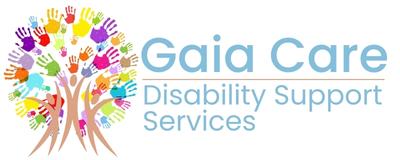There’s a crucial need for streamlined and effective disability support coordination services in Queensland to ensure individuals living with disabilities receive the necessary assistance and care they require. Disability support coordination plays a pivotal role in assisting individuals in navigating the various support services available to them, ensuring they can access the appropriate resources to enhance their quality of life. Organizations like Multicap Disability Services are instrumental in providing NDIS Support Coordination to individuals in Queensland, aiding in the coordination of supports and services under the National Disability Insurance Scheme. Understanding the intricacies of disability support coordination is necessary for both individuals living with disabilities and their families to navigate the complex support system effectively.
Key Takeaways:
- Disability Support Coordination plays a crucial role in assisting individuals with disabilities to navigate support services.
- Support coordinators in Queensland are trained professionals who work closely with clients to identify their needs and develop personalized support plans.
- Coordination services help individuals access a wide range of support options, including healthcare, education, employment, and community activities.
- Collaboration between support coordinators, clients, families, and service providers is important to ensure effective support delivery and positive outcomes.
- Regular reviews and updates of support plans are necessary to adapt to the changing needs and circumstances of individuals with disabilities.
Understanding Disability Support Coordination
Definition and Goals
Any individual with a disability may require support coordination to navigate the complex web of disability services and providers. The primary goal of disability support coordination is to assist individuals in achieving their goals, enhancing their independence, and accessing the necessary supports to live their best lives.
The Role of Support Coordinators
Disability support coordinators play a crucial role in facilitating access to disability support services, linking individuals with the appropriate service providers, and ensuring that they receive the support they are entitled to. The goals of support coordinators include helping individuals understand their NDIS plans, advocating on their behalf, resolving any issues that may arise, and promoting their rights and choices in decision-making processes.
Another key aspect of the role of support coordinators is to build capacity within individuals with disabilities, empowering them to take control of their lives and make informed decisions about their supports and services. Support coordinators act as a valuable resource, offering guidance, information, and assistance in navigating the disability support system effectively.
Assessing Individual Needs
Determining the Level of Support Required
Some individuals with disabilities may require different levels of support to lead a fulfilling life. This support can vary depending on their type of disability, level of independence, and personal goals. Through careful assessment and consultation with the individual and their support network, a suitable level of support can be determined.
Tailoring Services to Individuals
Any effective disability support coordination program must be tailored to meet the specific needs of each individual. This involves identifying the unique challenges and goals of the person with a disability, as well as taking into consideration their preferences and strengths. By customizing the services provided, individuals can receive the most appropriate support to help them thrive.
The process of tailoring services to individuals may involve creating a personalized support plan that outlines the services, resources, and strategies needed to address the specific needs of the individual. This plan is developed in collaboration with the individual, their family members, healthcare professionals, and other stakeholders to ensure a comprehensive and effective approach to supporting the person with a disability.
Another
Another crucial aspect of tailoring services to individuals is ensuring that the support provided is flexible and responsive to their changing needs. Regular reviews and assessments should be conducted to evaluate the effectiveness of the support plan and make any necessary adjustments to ensure that the individual’s evolving needs are being met. By continually adapting the services to the individual, disability support coordination can effectively empower individuals to achieve their goals and enhance their quality of life.
Services and Programmes Available in Queensland
Government-Funded Initiatives
To access a wide range of disability services and support in Queensland, individuals can tap into various government-funded initiatives. These programs are designed to assist individuals with disabilities in navigating their everyday lives and accessing the support they need to thrive. From disability accommodations in housing to specialized health services, government-funded initiatives play a key role in providing comprehensive support to those in need.
Community-Based Support Options
Support Coordination in Queensland is crucial for individuals with disabilities to access the support services they require. Community-based support options offer a more personalized approach to addressing the unique needs of individuals. By connecting individuals with local resources, community-based support options empower individuals to live more independently and participate fully in their communities.
Options available through community-based support include assistance with daily living activities, social inclusion programs, transportation services, and more. These services cater to the specific needs of individuals with disabilities and aim to enhance their overall quality of life.
Challenges in Disability Support Coordination
Navigating the System
The process of coordinating disability support services in Queensland can be overwhelming and complex for individuals with disabilities and their families. Navigating through the various service providers, government agencies, and funding options available can be a daunting task, often requiring a deep understanding of the system and its requirements.
Ensuring Quality and Consistency of Support
For individuals with disabilities, ensuring the quality and consistency of support services is necessary for their well-being and independence. However, with multiple service providers and varying levels of expertise, it can be challenging to guarantee that the support received meets the individual’s specific needs and goals.
Support coordination plays a crucial role in bridging the gap between the individual with a disability and the support services available. Support coordinators work closely with clients to identify their unique needs, connect them with suitable service providers, and monitor the quality of support provided to ensure consistency and effectiveness.
Conclusion
From the above, it is evident that disability support coordination in Queensland plays a crucial role in providing tailored services and support to individuals with disabilities. By working closely with clients, families, and service providers, disability support coordinators ensure that individuals receive the necessary assistance to enhance their quality of life and achieve their goals. The collaboration and coordination provided by these professionals contribute to a more inclusive and supportive community for people with disabilities in Queensland.
FAQ
Q: What is Disability Support Coordination in Queensland?
A: Disability Support Coordination in Queensland is a service that assists individuals with disabilities in accessing and navigating the support services available to them. Support coordinators work closely with clients to identify their needs and goals, develop individual support plans, and connect them to relevant services and resources.
Q: Who is eligible for Disability Support Coordination in Queensland?
A: Individuals with a disability who are eligible for the National Disability Insurance Scheme (NDIS) or other funding programs may qualify for Disability Support Coordination in Queensland. It is important to check the specific eligibility criteria for the program you are applying for.
Q: What services are provided through Disability Support Coordination in Queensland?
A: Disability Support Coordination in Queensland offers a range of services, including assistance with finding and accessing disability support services, developing and implementing support plans, coordinating services from different providers, advocating for the individual’s needs, and monitoring progress towards goals.
Q: How can I access Disability Support Coordination in Queensland?
A: To access Disability Support Coordination in Queensland, individuals can contact their local disability support organization or service provider. They can also inquire through the National Disability Insurance Agency (NDIA) if they are NDIS participants. Referrals can also be made by healthcare providers, social workers, or other support agencies.
Q: Are there any costs associated with Disability Support Coordination in Queensland?
A: The costs associated with Disability Support Coordination in Queensland may vary depending on the funding program being used and the service provider. Some programs may fully fund support coordination services, while others may require a co-payment or contribution from the individual. It is important to clarify any costs before accessing the service.
Gaia Care Disability Support Services
We provide disability services to the greater North Brisbane and Moreton Bay Communities. Our services include:
- Individual Support
- Overnight Support
- Social Support
- SIL – Supported Independent Living
- Respite Care
- Community Access
- Personal Care
- Transportation
- Assistance With Medication
- Mindful Activities

